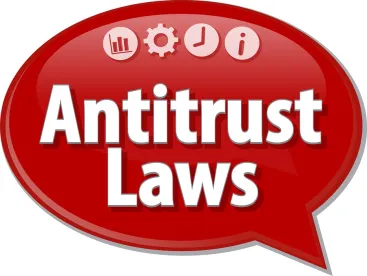The antitrust outlook in the United States in 2018 continues to present uncertainty. Below, we look to identify some sources of that uncertainty and offer some predictions for industries, including the auto industry, for the year ahead.
Trump Administration Signals New DOJ Directions
Historically, U.S. antitrust enforcement has been marked more by continuity than abrupt change. During the past few decades we saw an evolution away from blanket rules of per se legality or illegality (e.g., resale price maintenance and inflexible merger standards), a greater emphasis on economic analysis of likely competitive effects, and an attempt to strike a balance between overly aggressive enforcement (which inhibits potentially procompetitive conduct benefiting consumer welfare) and overly lenient enforcement (which risks unacceptable competitive/consumer welfare consequences).
In his 2016 campaign for president, however, Donald Trump frequently expressed populist themes, rhetorically criticizing “big business” and “special interests.”
Candidate Trump also signaled an activist antitrust agenda with his comment in October 2016 that a major telecom deal (Time Warner/AT&T) would not be allowed:
“AT&T is buying Time Warner and thus CNN, a deal we will not approve in my administration because it’s too much concentration of power in the hands of too few.”
Candidate Trump is now President Trump.
Makan Delrahim, President Trump’s nominee for the Assistant Attorney General for Antitrust post at DOJ, was confirmed by the Senate in September 2017. The first major merger review for Delrahim to consider as AAG was Time Warner/ AT&T, a review complicated by politics. Delrahim’s Senate confirmation was significantly delayed by a hold placed on his confirmation vote by Senator Elizabeth Warren (D-MA). Delrahim had pledged to the Senate Judiciary Committee that his enforcement decisions would be free from the political influence of the White House. In a letter dated October 12, 2017, following Delrahim’s confirmation, Senator Warren urged Delrahim to recuse himself from the Time Warner/AT&T merger review.
Delrahim declined this recusal request.
This merger review turned surprisingly contentious in November 2017, with Delrahim signaling to the parties that DOJ would require significant structural relief and stating publicly that behavioral relief, of the type historically accepted by DOJ (and FTC) to address vertical merger concerns, is now highly disfavored. In support of this view, Delrahim cited the difficulty to DOJ of enforcing behavioral relief.
“Behavioral remedies presume that the government should serve as a roving ombudsman of the affairs of business; even if we wanted to do that, we often don’t have the skills or the tools to do so effectively.”
He also cited a more general concern with the “regulatory” implications of DOJ requiring behavioral relief. “Like any regulatory scheme, behavioral remedies require centralized decisions instead of a free market process.”
On November 20, 2017, DOJ filed a complaint to enjoin Time Warner/AT&T. Questions regarding the antitrust merits of the complaint, the inadequacy of behavioral relief and political influence from the White House soon followed.
This DOJ challenge is scheduled for trial beginning on March 19, 2018. A settlement consisting of some combination of structural and/or behavioral relief is possible. Appellate court review of a trial court decision is also possible.
However this DOJ merger challenge ends, a few lessons for this 2018 Antitrust Outlook are already in hand:
- DOJ, under Makan Delrahim’s leadership may pursue a merger enforcement agenda with potential surprises and new thinking;
- “traditional” expectations for antitrust enforcement during a Republican administration may not be fulfilled; and
- efforts to apply political influence on merger matters may be present (although the impact of those influences on review outcomes may not be transparent).
At the same time, the Antitrust Division has for decades aggressively pursued per se illegal cartel conduct. This longstanding effort has generated an increasing number of criminal prosecutions, billions of dollars in fines, and significantly longer terms of incarceration for individual offenders. The number of grand jury investigations continues to be robust. It is unlikely that this criminal antitrust enforcement agenda will change during the Trump Administration, as this segment of DOJ’s enforcement agenda has wide bipartisan support and is significantly insulated from political influences.




 />i
/>i

